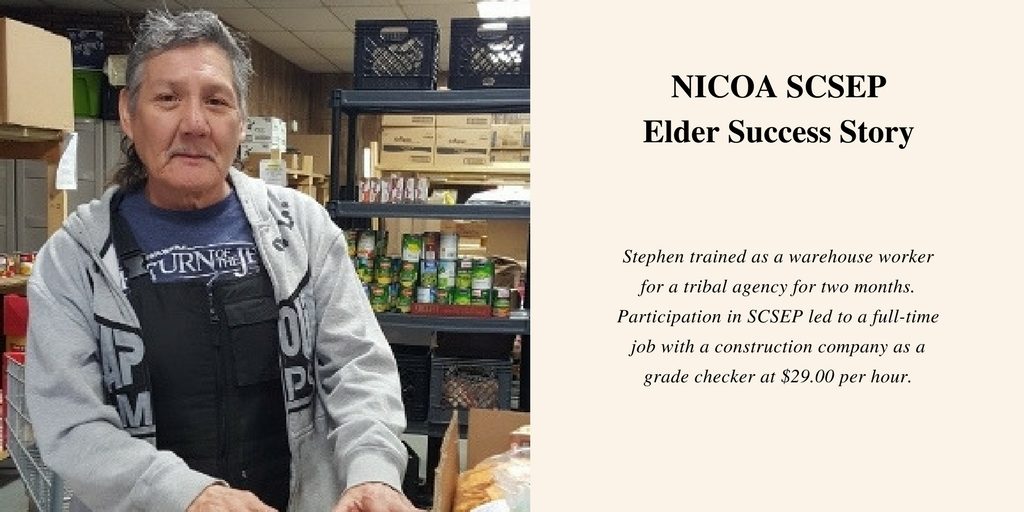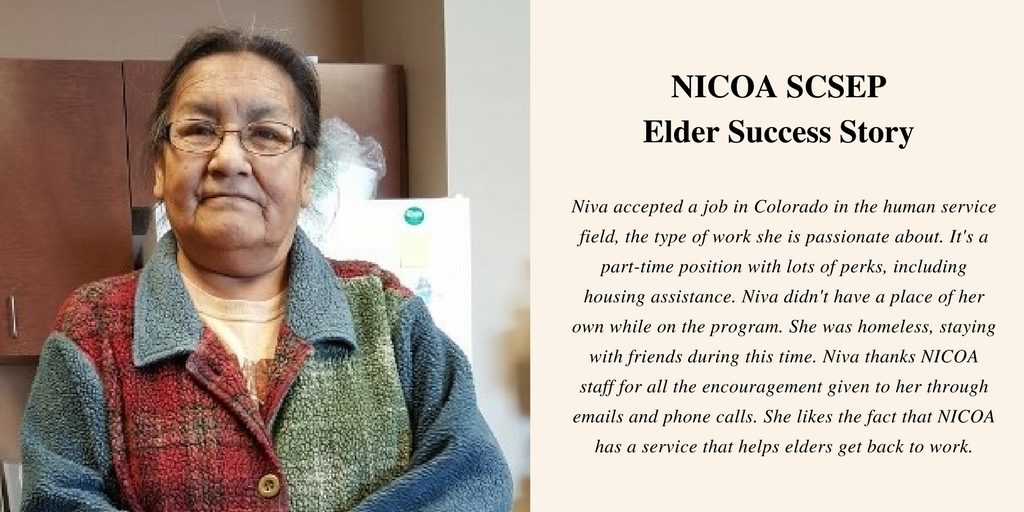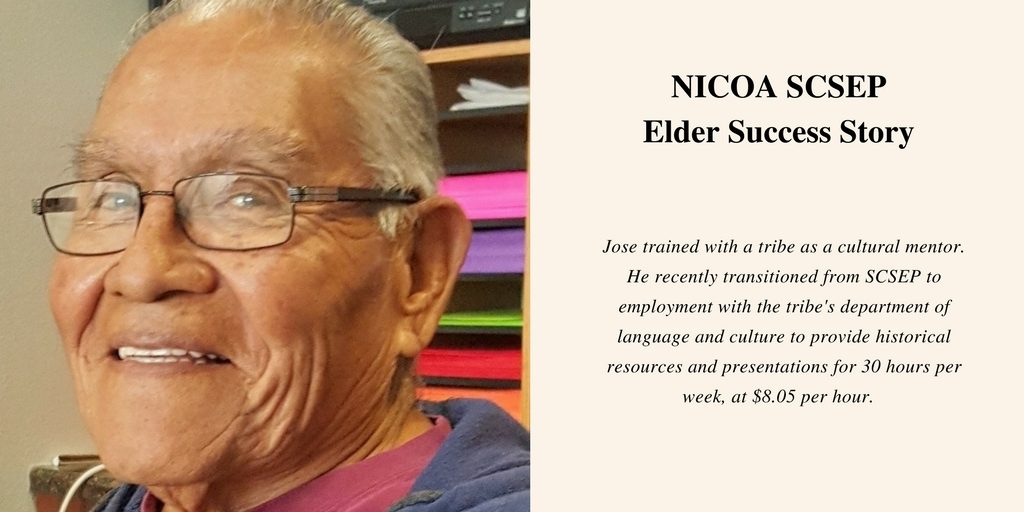This post originally appeared on the NICOA blog.
The Senior Community Service Employment Program (SCSEP) is the only federal community service and job training program focused exclusively on serving low-income older adults 55 and older, in nearly all 3,000 U.S. counties and territories through state and national grantees. Seventy-five percent of the money spent for this program goes directly to wages for 65,170 older Americans.
Participants in the program work and receive on the job training at 20,000 local nonprofit and government programs. These host agencies include libraries, senior centers, schools, and tribal government offices. Last year, SCSEP participants provided nearly 35 million staffing hours to these local programs, including more than 7 million hours serving older adults through programs such as Meals on Wheels. Based on estimates by the research organization Independent Sector, the value of the work performed by SCSEP participants exceeded $820 million.
The program targets those with employment barriers including those living in rural areas, veterans, homeless individuals, or people at risk of becoming homeless, individuals with disabilities, and those 75 or older.
Senior Community Service Employment Program graduates offer significant benefits to their employers
Despite the significant barriers faced by these job seekers, the program has a strong record of transitioning 50% of its unemployed participants into unsubsidized, permanent jobs, according to the Administration’s FY 2016 budget. The job search takes longer for an older adult, usually twice as long as it takes a younger worker. Once an older adult finds a job, more than 70% remain on the job after exiting the SCSEP program. SCSEP participants learn relevant skills, develop new work experiences, and gain confidence to enter and reenter the changing workforce through permanent employment opportunities.
In 1978, SCSEP was designated as Title V of the Older Americans Act, and the law mandates healthy aging as a measure of the program as well as labor market outcomes. A recent evaluation stated:
“Local SCSEP projects are providing much-needed services that increase the emotional wellbeing of older workers, offer much-needed staffing for host agencies, and place nearly half of its exiters who are available for work into unsubsidized employment. The evaluation has also suggested that employment outcomes reflect only one aspect of the program’s objectives, which also include increasing the overall quality of life of low income elders who are having difficulty meeting their financial needs.”
Reserved Funding Created to Aid American Indians, Asian Americans and Pacific Islanders
Public Law 100-175 added a new provision to the Older Americans Act requiring the Secretary of Labor to award Title V funds to assist American Indian (AI) and Asian Americans and Pacific Islander (AAPI) older adults in obtaining employment services. It added the requirement that some Title V funds be reserved for national grants or contracts with public or nonprofit national American Indian aging organizations and national public or nonprofit Asian American and Pacific Islander aging organizations.
NICOA SCSEP serving American Indian Elders
In 1989, the National Indian Council on Aging (NICOA) was awarded reserved funding specifically to provide Title V services to American Indian (AI) elders. Since that time, NICOA has continuously been awarded reserved funding to serve as a national SCSEP set-aside grantee, assisting American Indian elders across the country. Every four years NICOA submits a new competitive grant to continue operating SCSEP. Through this national AI set-aside grant, NICOA SCSEP has served over 750 elders a year, of which, more than 58% are AI elders.
Funding for the program has never been enough to cover the entire country, so NICOA strategically researched and identified areas across the country most in need, where many of our tribes are located. Many of these areas are not served by other national or state SCSEP programs. This is because American Indian areas are often rural and hard to reach. Reaching elders here requires an organization that is knowledgeable, honors tribal sovereignty, and works harmoniously with the tribes. NICOA is knowledgeable about Indian Country and has been successful at making the program work for our elders who live in these remote and often desolate areas, which are hard hit by high unemployment, and lack host sites necessary for training and community service placements for elders.
Elders Train for the Technological Age
NICOA SCSEP participants at a tribal community host agency completed mandatory computer training on a new computer software program. The training enabled them to capture characteristics of clients served, identify court papers for tribal citizens, check if the applicant is enrolled or eligible to enroll for tribal membership, and then completed the verification process. The host site supervisor states that they have all done a great job with the transition to the new software program. They were a bit nervous, but because they were together as a group and had a strong support system, they felt comfortable learning together.
NICOA SCSEP host agency success story
NICOA SCSEP participants working at a host agency for a tribe have been effective at changing how the community views the community education building. The statement below is from the host agency supervisor:
“First of all our NICOA SCSEP participants have made our building a safer and welcoming place. The NICOA SCSEP participants have created an atmosphere of community, because they are tribal members who live within the community. They know everyone and they are respected elders and community members. Because of this, many other elders seem to frequent the building, and that is what we want, for the older generation to feel this is their building too.
Many of the community issues we had seemed to have diminished. We certainly do not have children running and screaming down the hallways. Instead, there is a calm to the building, and I feel safe leaving the building on business. Our SCSEP participants enjoy what they do, they are greeting people and talking with them, and feel a sense of accomplishment.
Overall, the different departments in the building are very happy with the NICOA SCSEP participants. We believe we are really fortunate to have them. We really appreciate the opportunity to train them. We feel we have benefitted from the experience as much as they. Thank you.”
These are just small examples of the many success stories NICOA SCSEP has helped to create. Combined with the determination of our participants, supportive host agencies, and experienced NICOA SCSEP staff, the future is brighter for many elders.
Read more NICOA SCSEP success stories at https://www.facebook.com/NICOAAging/ or on our blog at http://nicoa.org/nicoa-news/
The White House has proposed the elimination of the SCSEP program in its FY18 budget. This essential program must be protected, not cut. For more information on SCSEP and the proposed cuts to programs that serve diverse elders, check out our fact sheets: http://bit.ly/decbudgetfacts
The opinions expressed in this article are those of the author and do not necessarily reflect those of the Diverse Elders Coalition.




